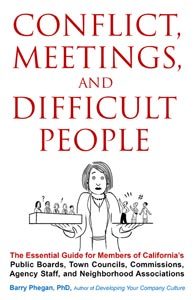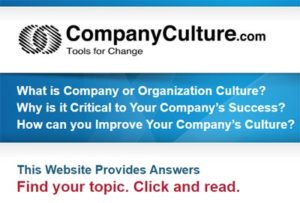 I just finished reading Tara Westover’s remarkable memoir, Educated. It’s a story about the destructive effects of a controlling leader. For Tara, that leader was her father. For Tara — and every child — becoming an adult includes coming out from under parental control. But for some, that’s a deadly path. Tara barely survived.
I just finished reading Tara Westover’s remarkable memoir, Educated. It’s a story about the destructive effects of a controlling leader. For Tara, that leader was her father. For Tara — and every child — becoming an adult includes coming out from under parental control. But for some, that’s a deadly path. Tara barely survived.
With a few changes, Educated could be the story inside many corporations, where unyielding top-down control prevents the company from growing up. When employees can’t behave like adults, they suffer. So do profits.
__________________
Educated
Tara grew up in rural Idaho. Her fundamentalist Mormon parents tried to protect their family from a corrupt, threatening world. Tara did not attend school. Under the guise of protection and isolation, she was psychologically and physically abused by her family. She was deeply ashamed. She writes, “Guilt is the fear of one’s own wretchedness.”
Tara’s dominating father still rigidly controls his wife and family. He sees them as objects to dominate, never human, never as adults, never as equals. While Tara successfully extracts herself, she does not explore (at least for her readers) what might lie behind her father’s need to control. What in his childhood made him so afraid?
Tara’s story got me thinking about control, and why it is such a powerful, recurring theme in our culture.
The Shadow Side of Control
What we do rises from our emotions, topped over with a thin layer of thought or reason. The emotional foundation is our hopes and desires, longings and fears. To some degree, all behavior reflects our fears; think, “Whistling in the dark.” The Roman playwright Seneca observed, “We suffer more in imagination than in reality.”
To avoid his fears and suffering, Tara’s father constructed a protective family system, where he dominates and controls. He believes the government is conspiring against him. Protect the family. Be constantly watchful. See threats in other people’s actions and words. Defend yourself against visible and known, and invisible and unknown, enemies. Bury guns strategically around your property. Buy a cannon. Stock survival supplies.
People with this world view force a complex world into a simple, black and white, yes-no, right-wrong construction. “You are either for or against me.” When challenged, Tara’s father becomes enraged. Similarly, Tara’s brother Shawn, became violent at the slightest provocation, real or imagined. He was angry enough to torture and kill.
When this protective drive is strong, it overwhelms reason. When this happens in profit-making corporations, leaders may put control ahead of profits.
Leader Psychology
Most people who rise to the top of corporations enjoy competition, the fight. Particularly they enjoy the taste of winning. By winning, or dominating, they control situations and people. With their desire for simplicity, controllers may not like or even understand — cooperation, openness, nuance, dialogue, and win-win.
Earlier in their corporate life, these skilled social competitors succeeded over less adversarial peers. People who don’t like fighting usually stand back, handing over the game. Winning brings promotion, creating a disproportionate representation of controllers on corporate peaks. While their control is mostly for the good, e.g. bringing order to marketplace chaos, organizing and planning, and protecting the company from attack, it may blind the leader from seeing some major opportunities for improved company performance.
The bottom line isn’t profits, it’s control
I saw this while working for 35 years with corporate leaders. Here’s my experience.
Open, participative work environments can be 2 to 3 times more productive, and hence profitable, than the usual top-down, autocratic corporate workplace. Corporate leaders preach profitability (“the bottom line”) and stockholder interests. Yet most don’t support more participative and productive work cultures.
I believe it’s because their publicly stated desire for profits is sometimes waylaid by their fear of losing control. If you think openness means loss of control, you block the open workplace. But ironically it’s workplace openness that inspires intimately engaged, mature, responsible, and highly productive employees.
Leaders rarely notice this contradiction between their words (“profits come first”) and actions (blocking the growth of more profitable workplaces).
The National Loss
The result is that across the United States, stockholders are denied trillions of dollars in additional profits, the public is shortchanged billions in lost taxes, and most employees are denied a more satisfying and fulfilling work experience. All this sadly because most of us stand back, allowing controllers, with their fear of openness and intimacy, to dominate the corporate playing field. This is nothing new. Since the dawn of recorded history, this combination of fear, control, and dominance has guided leaders and therefore shaped cultures
Tara Westover moved out from under the destructive control of her father. Most employees can’t move out. It’s up to leaders to be more self-aware how their desire for control may inhibit employees from bringing more of themselves to the workplace. Easing control can benefit employees, profits, and our GNP.
I welcome your suggestions, questions, or comments.
Thank you for visiting,
me, Barry Phegan, June 2019
Comments & Suggestions





